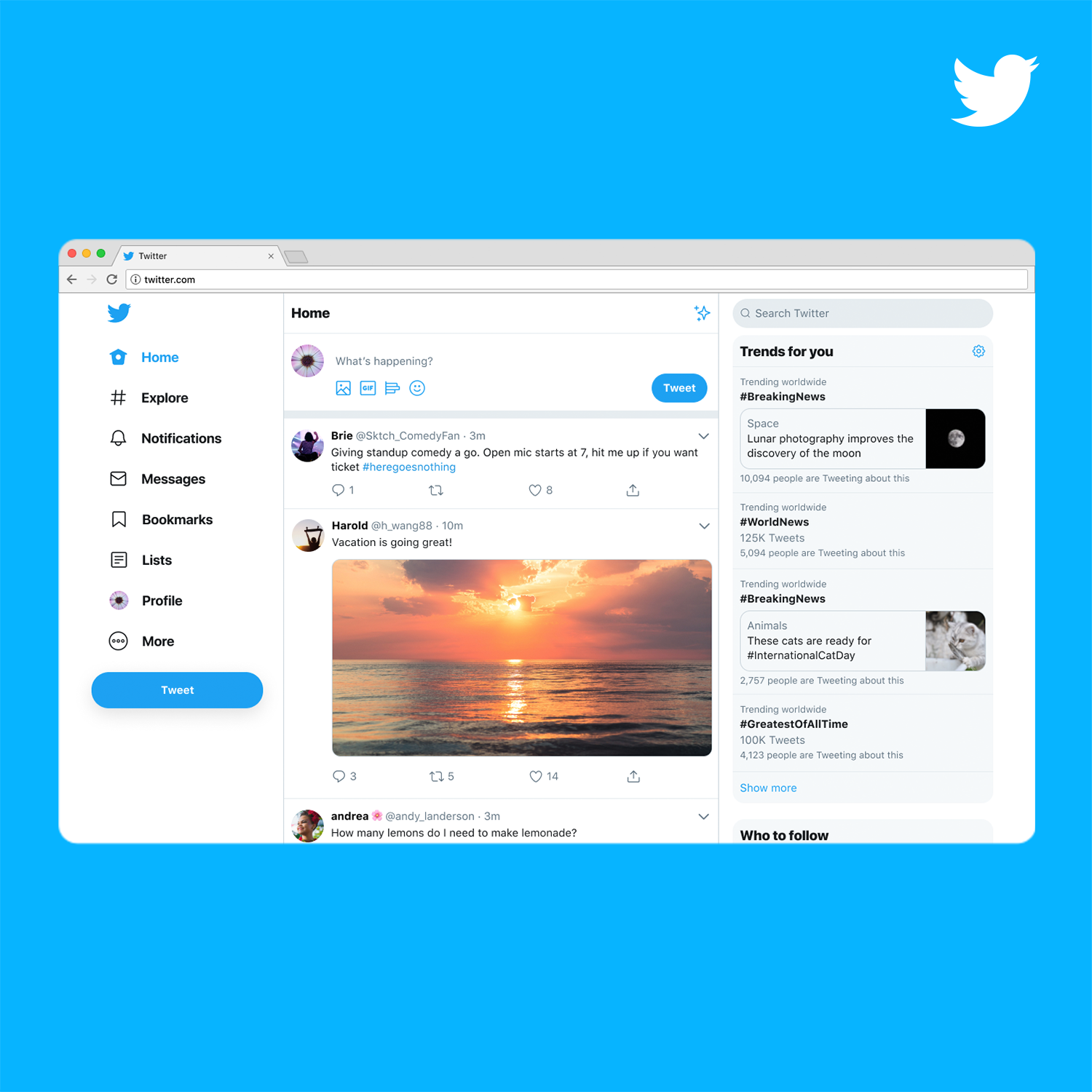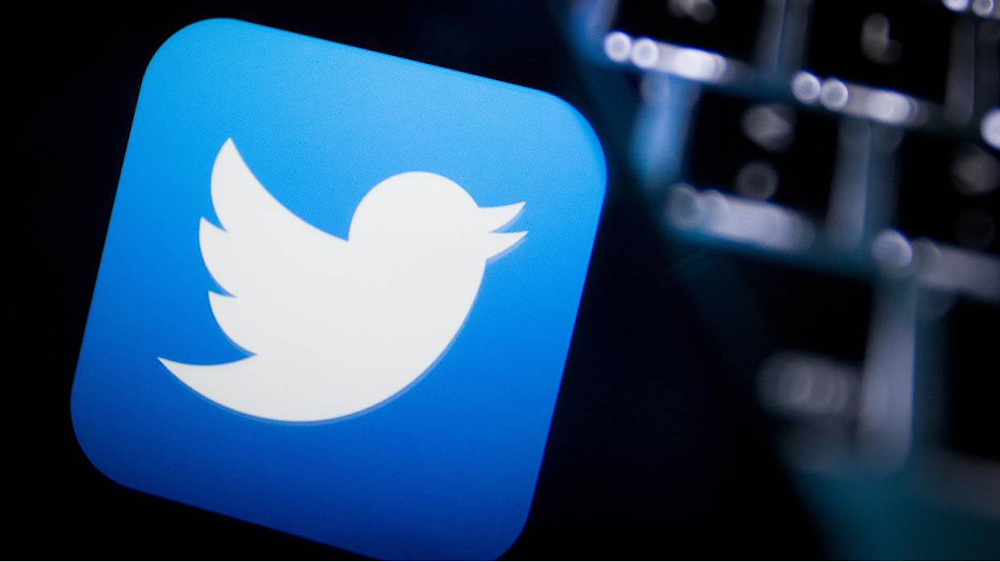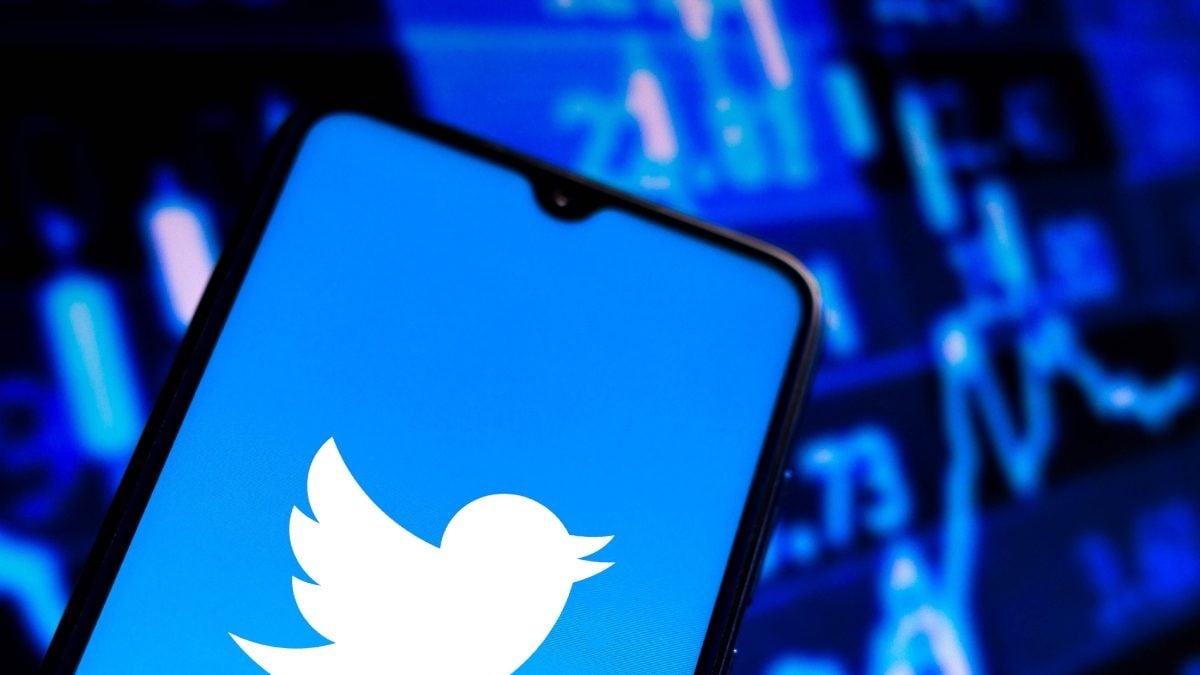There is, quite frankly, a lot of talk these days about what is happening with Twitter, and it's almost like everyone has an opinion about its direction. People are, in a way, really trying to figure out the platform's changing personality. It seems, to be honest, that what was once a simple place for quick updates has become something much more complex, prompting all sorts of discussions and feelings among those who use it, and even those who just watch from the sidelines.
The platform, you know, has seen some pretty big shifts, especially when it comes to money matters and how it deals with businesses. It's almost like, very suddenly, some big changes have come into play, affecting how companies can even show their messages there. This, in some respects, points to a period of a lot of adjustment for the social media space, where the rules of engagement seem to be written and rewritten rather quickly.
And yet, it's not just about the money side of things; the way people use Twitter and what they think of it also appears to be changing. There are, apparently, many stories about user experiences, from keeping up with friends to dealing with accounts that disappear or pop up again. This mix of experiences, basically, paints a pretty varied picture of what Twitter is right now for many different people.
- Diddy Blew Up Car
- Cassius Kidston
- Travis Kelce Hair Transplant
- Georgianne Walken Wedding
- Mackenzie Anderson
Table of Contents
- The Evolving Face of Twitter
- What's Behind the "Twitter Gay Demon Master" Talk?
- Money Matters - Advertiser Departures and Donations
- How Do Advertiser Choices Shape the "Twitter Gay Demon Master" Narrative?
- Voices from the Community - What Users Say
- Is Twitter a Welcoming Place, or a "Twitter Gay Demon Master" of Control?
- The Challenge of Account Management
- Does Twitter's Approach to Bans Create a "Twitter Gay Demon Master" of Chaos?
The Evolving Face of Twitter
Twitter, as a platform, has been through quite a bit of transformation, almost like a person growing and changing over time. It started out, in a way, as a pretty simple spot for sharing short messages, a place where you could, you know, just let everyone know what was on your mind. Over the years, it expanded, becoming a hub for news, for conversations, and for people to stay connected with others they know.
But lately, there's been, basically, a whole new set of things happening that have really shifted how people see it. The very way it operates, from how it makes money to how it manages its users, seems to be under a lot of scrutiny. It's like, in some respects, the platform is trying on a new identity, and not everyone is sure how they feel about the new look or personality.
This shift, to be honest, touches on many parts of how the platform functions. It includes, for instance, how it deals with its own rules, how it handles the money side of things, and even how it communicates with the people who use it every day. The changes, naturally, have led to a lot of discussion about what Twitter is becoming, and what it might mean for everyone who spends time there.
- Is Darcey Silva Married
- Is Lucky Leaving Gh
- Nikola Joki%C3%A4 Relationships
- Angel Reese Father
- Nancy Cartwright Niece
What's Behind the "Twitter Gay Demon Master" Talk?
When people talk about "Twitter gay demon master," they are, in a way, often pointing to some of the more difficult or controversial aspects that have come up on the platform. It's a phrase that, basically, seems to capture a feeling of something being out of sorts or perhaps a bit chaotic with how things are run. This kind of talk, you know, tends to pop up when there are strong feelings about changes or issues that users are experiencing.
The phrase itself, to be honest, isn't something you would find in an official statement from the company. Instead, it seems to be a very informal way some people express their frustration or their view of the platform's current state. It's like, in a way, a shorthand for all the things that might feel a little off or problematic to some users, especially when they see accounts getting banned or new ones appearing quickly.
This sort of language, you know, often comes from a place where people feel like they are not being heard, or that the platform is not quite working as they expect it to. It's, as a matter of fact, a reflection of the sentiment among some parts of the user base who are trying to make sense of the constant shifts and new challenges that seem to pop up on the platform with some regularity.
Money Matters - Advertiser Departures and Donations
The financial side of Twitter has seen some pretty big changes, which, you know, can really affect how a platform operates. There was a time, for example, when Twitter itself was barred from even putting its own messages on its own platform, which is, in a way, a very unusual thing to happen for a social media company. This kind of restriction, naturally, points to some serious internal issues or disagreements about how things should be handled.
On top of that, many businesses that used to spend a lot of money advertising on the platform have, basically, decided to leave. These advertisers, it seems, did not want their brands to be seen alongside certain kinds of talk that was happening on the platform, specifically content that was described as being homophobic or antisemitic. This departure of advertisers, obviously, has a direct impact on how much money the platform is bringing in.
However, there is also another part to this money story. Twitter is, apparently, giving away a pretty large sum of money, about $1.9 million, that a company called RT spent on advertising globally. This money, to be honest, is being put towards academic studies about elections and other related efforts. It's an interesting move, in a way, to take funds from one source and redirect them to research, especially given the financial challenges the platform has faced.
The fact that Twitter is donating this money, you know, shows a different side to its financial decisions, even while it's dealing with other income streams drying up. It's almost like, in some respects, they are trying to balance the books while also supporting important research, which is a rather complex situation for any company to manage. This kind of balancing act, essentially, shows the different pressures a large social media platform experiences.
How Do Advertiser Choices Shape the "Twitter Gay Demon Master" Narrative?
When advertisers decide to pull their money from a platform, it, you know, sends a pretty clear message about what they think of the platform's environment. In Twitter's case, the choice by businesses to leave because of content that was seen as homophobic or antisemitic really shapes how people talk about the platform. It's like, in a way, these actions contribute to the idea that Twitter might be a "gay demon master" of sorts, meaning it has a difficult or controversial side that makes some people uncomfortable.
The departure of these big brands, basically, can make the platform seem less safe or less appealing to a wider audience. If companies are worried about their image being connected to certain kinds of talk, then, naturally, users might also start to feel that way. This can, to be honest, make people wonder about the overall atmosphere of the platform and whether it is a place they want to spend their time.
So, in some respects, the decisions made by advertisers are not just about money; they are also about the platform's reputation and how it is perceived by the public. When businesses step away due to concerns about the content or the tone of the conversations happening there, it, you know, adds to the narrative that Twitter might be a bit out of control or perhaps not living up to certain expectations for a welcoming space.
Voices from the Community - What Users Say
Despite some of the challenges, a lot of people still find Twitter to be a pretty good spot for connecting with others. Surveys have shown that, actually, more than half of the people asked, somewhere around 58% to 51%, think it's a good place to be. This suggests that, in a way, for many users, the platform still serves its main purpose of letting them keep up to date with their friends and what's happening around them.
People use Twitter, you know, to follow what's going on in the world and to see what others are talking about. It's a place where, basically, you can get quick updates and feel like you are part of a bigger conversation. This ability to stay informed and connected is, in some respects, a very strong point for the platform, even with all the other issues that come up.
A part of using Twitter, of course, involves having a profile picture. It's, as a matter of fact, important for this to be a photo of you that people can recognize. This helps others know who they are talking to and makes the connections feel more real. So, in a way, the simple act of having a clear profile picture helps to build that sense of community and personal connection that many users value.
However, there are also voices that express frustration, saying that Twitter is, you know, "kind of shit" when it comes to how it handles bans and people reporting others. This feeling, to be honest, points to a concern that the rules are not always applied fairly or that the system for moderating content could be better. It's like, in some respects, a lot of users feel that the way accounts are managed could use some serious improvement.
Is Twitter a Welcoming Place, or a "Twitter Gay Demon Master" of Control?
The question of whether Twitter is a truly welcoming place, or if it acts more like a "twitter gay demon master" of control, really depends on who you ask and what their experiences have been. For many, it is, in a way, a valuable tool for staying in touch with friends and getting news quickly. They find it, you know, to be a pretty open space where they can share their thoughts and interact with others without too much trouble.
However, there is also, basically, a strong feeling among some users that the platform has too much power over what can be said and who can say it. The complaints about bans and "snitching," for example, suggest that some people feel the platform's control can be a bit heavy-handed or unfair. This creates a tension between the idea of an open forum and a platform that, in some respects, dictates what is acceptable.
So, you know, the perception of Twitter as either a welcoming community or a controlling entity often comes down to individual encounters with its rules and moderation. It's almost like, in a way, the platform presents two different faces to its users, and whether you see one or the other often depends on whether you have had a positive experience with its freedom or a negative one with its restrictions.
The Challenge of Account Management
Managing accounts on Twitter seems to be a pretty big job, and it comes with its own set of difficulties. There are, you know, a lot of stories about what some people call "dumb shananigans" that cause accounts to get shut down. And then, apparently, new accounts pop up almost immediately, creating a situation that feels like playing "wackamole" for those trying to keep things in order. This kind of back-and-forth, basically, makes it hard to maintain a consistent environment.
This constant cycle of accounts appearing and disappearing, to be honest, points to a significant challenge in how the platform enforces its rules. It's like, in a way, there is a continuous effort to manage content and user behavior, but new ways around the rules seem to emerge pretty quickly. This can be, you know, very frustrating for both the platform's staff and for regular users who just want a stable experience.
The issue of bans and reporting, as mentioned earlier, is also a part of this challenge. Users feel that the system is, basically, "kind of shit" in how it handles these things. This suggests that there are, in some respects, concerns about fairness and consistency in how rules are applied, leading to a feeling of unpredictability for those who use the platform regularly.
It is also worth noting that some images used on most sites come from a few standard formats. While this might seem like a small detail, it can, in a way, relate to how content is shared and managed across different platforms, including Twitter. This might, you know, contribute to the overall challenge of identifying and dealing with various types of accounts and their content.
And then there is the mention of a "start date" of January 13, 2025. This date, to be honest, is a bit of a mystery without more context, but it could, in some respects, point to a future policy change, a new system coming online, or some other significant event that will affect how accounts are managed. It's almost like, in a way, the platform is always looking ahead to new ways of operating.
Also, it's true that a lot of escorts use Twitter, as well as other social media sites like Reddit, Tryst, PD, TER, and P411. They, basically, operate in a similar fashion across these different platforms. This presence, you know, adds another layer of complexity to account management and content moderation, as platforms must figure out how to handle various types of user activity and ensure they are following local laws and their own guidelines.
Does Twitter's Approach to Bans Create a "Twitter Gay Demon Master" of Chaos?
The way Twitter handles account suspensions and content reporting can, you know, definitely make some people feel like the platform is a "twitter gay demon master" of chaos. When users experience what they feel are unfair bans or when they see new accounts quickly replacing old ones, it creates a sense of disorder. This feeling, basically, suggests that the system for keeping things in order might be struggling to keep up with the sheer volume of activity.
The constant need to play "wackamole" with accounts that violate rules, only to have them pop up again, can, in a way, lead to a very frustrating experience for everyone involved. It's like, in some respects, the platform is caught in a never-ending cycle of trying to enforce its policies, but the challenges just keep coming. This situation, to be honest, can make it hard for users to trust that the platform is a stable or predictable place.
So, when people talk about Twitter being a source of chaos, they are often referring to these very real struggles with moderation and account management. It's almost like, in a way, the platform's efforts to control problematic behavior sometimes inadvertently create more confusion or frustration, leading to the perception that it is, you know, a bit of a wild place to be.


